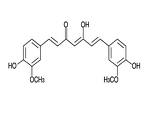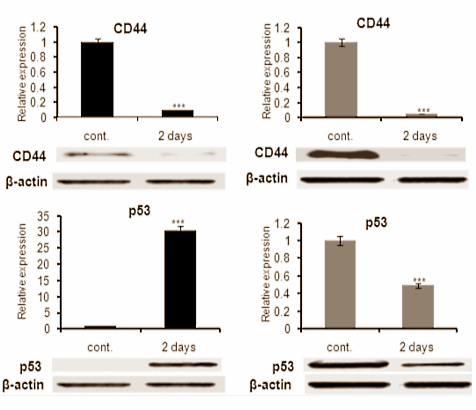|
Definition: "An ergogenic aid is any substance or phenomenon that enhances performance "
|
|
||||||||
12.04.2014 |
|
|
Phytochemical 'super-cocktail' tames cancer cells
We have already written about work that these researchers are doing: about the cancer inhibiting effect of Spirulina platensis. The researchers reported that an extract of this green-blue cyanobacteria protected lab animals against breast cancer.
In the study mentioned here, the researchers tested the joint effect of six compounds, all of which have shown a cancer-inhibiting effect in cell and animal studies. First author Allal Ouhtit calls the combination a 'phytochemical super-cocktail'. The composition of the cocktail is shown below, along with the concentrations used. All of these can occur in the human body.
The researchers studied the effect of the individual components of the mix, plus their combined effect, on the human breast cancer cell lines MCF7 and MDA-MB-231. The latter is the most harmful as this cell type is not sensitive to hormones. Hormone-sensitive cancer cells can be treated by using hormone therapy; types that are not sensitive to hormones cannot be treated in this way.
The figure below shows that separately the components – except for indole-3-carbinol – did not have much effect on the growth of cancer cells. But the 'super-cocktail' reduced the growth of both types of cell after just a few days of exposure. The figure below shows the results for the MCF7 cells. The MDA-MB-231 cells reacted almost identically.
The combination of plant substances reduced the ability of the cancer cells to spread themselves in other, healthy cells [Relative invasiveness] by 80 percent.
When the researchers examined the cancer cells at molecular level, they discovered how the combination of plant substances neutralised the cancer cells. One thing that the combination did was to reduce the synthesis of the protein CD44. Cancer cells use this protein when they spread through healthy tissue.
MCF7 cells are still capable of producing the tumour-inhibiting protein p53. When healthy cells are under pressure, they produce more p53. As a result, cells stop developing and give priority to repair processes. If the DNA has been damaged, p53 helps a cell to repair this. If this doesn't work, p53 causes the cell to commit suicide. The 'super-cocktail' boosted the production of p53 in MCF7 cells by a factor 29 [below left].
In MDA-MB-231 cancer cells the p53 gene is damaged. As a result these cancer cells produce a perverted protein: one that strengthens the cancer cells rather than causing them to commit suicide. The combination of plant substances reduced the synthesis of this protein in the MDA-MB-231 cells [above right].
You'd expect that supplements containing components from the cancer-inhibiting cocktail could offer humans protection against cancer. The researchers want to do experiments to find out whether this is the case. On lab animals.
Source:
More:
|
|











